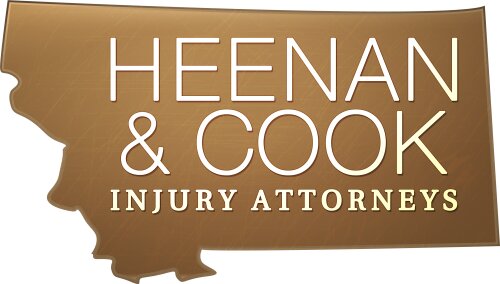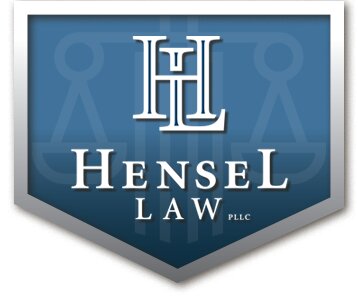Best Premises Liability Lawyers in Billings
Share your needs with us, get contacted by law firms.
Free. Takes 2 min.
List of the best lawyers in Billings, United States
1. About Premises Liability Law in Billings, United States
Premises liability in Billings, Montana is about holding property owners and occupiers accountable for injuries that occur due to unsafe conditions on their premises. In Montana, these claims are generally grounded in the broader law of negligence. A plaintiff must show that the landowner or manager owed a duty of care, breached that duty, and caused injuries as a result.
In practical terms, most Billings premises liability cases involve everyday hazards like slippery aisles in grocery stores, uneven sidewalks in parking lots, or defective stairs in apartment buildings. Local factors, such as Montana’s cold winters and frequent snowfall, can increase the risk of slip and fall injuries and thus influence how cases are evaluated by courts.
While state statutes provide the statutory framework for civil liability, Montana case law shapes how duties are interpreted in real world situations. Federal laws also affect premises liability, particularly in public accommodations and accessibility matters. A local attorney can explain how Montana statutes and statewide court decisions apply to your Billings injury.
Key point: Premises liability claims rely on proving a property owner’s duty of care, breach of that duty, causation, and damages, with local factors and case law playing major roles in outcomes.
2. Why You May Need a Lawyer
Getting timely legal help after a premises related injury in Billings can improve your odds of a fair outcome. Here are concrete, real world scenarios where consulting a local premises liability attorney is advisable.
- A customer slips on a wet floor in a Billings grocery store and sustains a back injury, but the store claims the hazard was obvious and had no prior notice.
- A tenant trips on a broken stair in a rental complex common area during an icy Montana winter, and the property manager delays repair work for weeks.
- A shopper sustains a knee injury after a pothole and poor lighting in a Billings shopping center parking lot leads to a fall.
- A guest is injured by a faulty elevator in a commercial building used for offices or retail in downtown Billings.
- A visitor suffers a fall after stepping on a defect in a public hallway inside a city owned or managed facility, such as a library or transit hub.
- Medical clinic or hospital premises cause an injury due to broken flooring or blocked exits, complicating a patient’s treatment timeline.
In each scenario, a local attorney can help assess whether the property owner owed a duty to you, whether that duty was breached, and how damages are calculated under Montana law. An attorney can also advise on preserving evidence and coordinating with medical providers to support a claim.
3. Local Laws Overview
Montana premises liability claims are grounded in state statutes and heavily informed by Montana case law. The following are prominent, jurisdictionally relevant references you may encounter:
- Montana Code Annotated Title 27 - Civil Liability - This title covers general civil liability principles, including duties of landowners and the standards used to determine negligence in premises related claims. It is the primary statutory framework used to evaluate injuries on private and commercial property in Montana.
- Americans with Disabilities Act (42 U.S.C. § 12181 et seq.) - This federal law requires public accommodations and certain businesses to be accessible to individuals with disabilities. It can affect premises liability in public spaces and influences how property owners address safety features like ramps, entryways, and accessible routes. Implementing regulations appear in 28 C.F.R. Part 36.
- Montana Human Rights Act (Mont. Code Ann. Title 49, Chapter 2) - This statute protects individuals from discrimination in places of public accommodation. While it focuses on equal access and protections, it intersects with premises liability when access and safety for protected classes are involved.
According to federal law, "Public accommodations shall be accessible to individuals with disabilities" and must remove barriers where readily achievable.
Notes on dates and changes: Statutory provisions continue to be updated by the Montana Legislature and by federal amendments. For the latest version of Montana statutes, consult the official Montana Legislature site. For federal accessibility requirements, consult the U.S. Department of Justice guidance on the ADA.
Montana Legislature - Official site | U.S. Department of Justice - Americans with Disabilities Act | Montana Judicial Branch - Official site
4. Frequently Asked Questions
What is premises liability in Billings?
Premises liability is a legal area that covers injuries from unsafe conditions on property. In Montana, you typically prove duty, breach, causation, and damages in a premises related claim.
How do I begin a Billings premises liability claim?
Start by documenting the incident, gathering photos and reports, and contacting a local attorney who can evaluate your case and outline next steps.
When should I file a claim after an injury on someone else property?
Montana generally imposes a statute of limitations on personal injury cases, often around three years from the date of injury. A lawyer can confirm the exact deadline for your situation.
Where do I file a premises liability lawsuit in Montana?
Most cases are filed in the district court that has jurisdiction over the location where the incident occurred. Your attorney will determine the correct venue for your claim.
Why do I need local Billings counsel for premises liability?
Local counsel understands Billings courts, juries, and insurers. They can tailor strategies to the specifics of Montana law and the local legal environment.
Can I recover medical expenses in a premises liability case?
Yes. You may recover medical costs, including past and future medical expenses related to the injury, as part of damages in a premises liability claim.
Should I talk to an insurer before contacting a lawyer?
It is generally wise to consult a lawyer before giving statements to insurers. A lawyer can help protect your rights and avoid statements that may hurt your case.
Do I need to prove the owner knew about the hazard?
Often you must show the owner knew or should have known about the hazard, or that the hazard was present long enough to be discovered with reasonable care.
Is there a difference between premises liability and product liability?
Yes. Premises liability concerns conditions on property, while product liability involves injuries caused by a defective product, regardless of where it was used.
What is the open and obvious doctrine in Montana?
The doctrine addresses whether a hazard is so obvious that it does not impose a duty to warn or fix it. Montana courts apply this doctrine through case law rather than statute.
How long does a typical Billings premises liability case take?
timelines vary. Some cases resolve in months, while others may take a year or more, depending on discovery needs and court schedules.
5. Additional Resources
- Montana Legislature - Official Statutes - Access current Montana Code Annotated sections related to civil liability and premises related duties. Website: leg.mt.gov
- Montana Judicial Branch - Court decisions, jury instructions, and case law guidance relevant to premises liability in Montana. Website: courts.mt.gov
- U.S. Department of Justice - Americans with Disabilities Act - Federal accessibility standards and enforcement information affecting public accommodations. Website: ada.gov
6. Next Steps
- Gather your documents within 7 days of the incident. Collect incident reports, photos, medical records, bills, and witness contacts.
- Identify potential responsible parties in Billings such as store owners, landlords, or managers. Create a list with names and addresses.
- Schedule a no obligation consultation with a Montana premises liability attorney within 2 weeks. Bring your evidence package to the meeting.
- Ask about the attorney's fee structure, including whether they work on a contingency basis for premises cases.
- Have the attorney assess your statute of limitations and confirm the deadline to file a complaint in your Billings case.
- Preserve evidence by documenting hazards and avoiding alteration of the scene after the incident, per your lawyer's instructions.
- If an insurer contacts you, avoid making recorded statements until you have legal guidance. Have your attorney handle communications.
Note on sources: For statutory language and official guidance, consult the Montana Legislature site for current codes (Montana Code Annotated) and the Montana Judicial Branch for court decisions. Federal guidance on accessibility and public accommodations is available from the U.S. Department of Justice.
Lawzana helps you find the best lawyers and law firms in Billings through a curated and pre-screened list of qualified legal professionals. Our platform offers rankings and detailed profiles of attorneys and law firms, allowing you to compare based on practice areas, including Premises Liability, experience, and client feedback.
Each profile includes a description of the firm's areas of practice, client reviews, team members and partners, year of establishment, spoken languages, office locations, contact information, social media presence, and any published articles or resources. Most firms on our platform speak English and are experienced in both local and international legal matters.
Get a quote from top-rated law firms in Billings, United States — quickly, securely, and without unnecessary hassle.
Disclaimer:
The information provided on this page is for general informational purposes only and does not constitute legal advice. While we strive to ensure the accuracy and relevance of the content, legal information may change over time, and interpretations of the law can vary. You should always consult with a qualified legal professional for advice specific to your situation.
We disclaim all liability for actions taken or not taken based on the content of this page. If you believe any information is incorrect or outdated, please contact us, and we will review and update it where appropriate.










